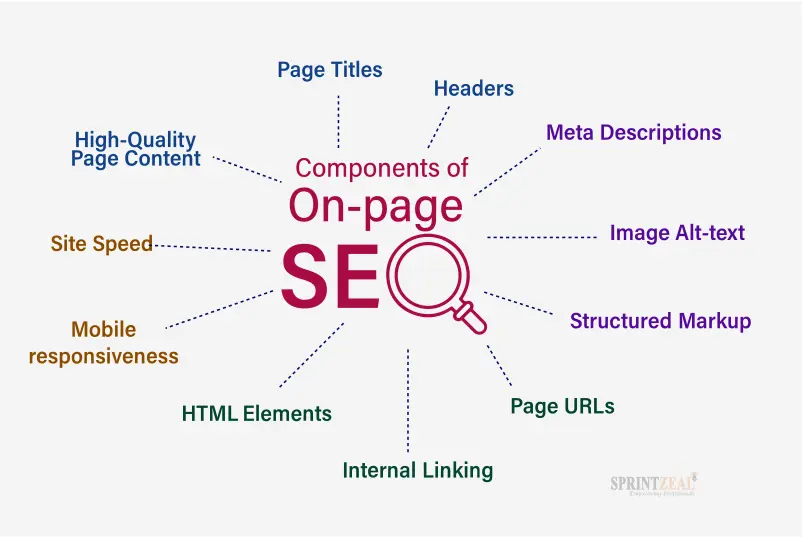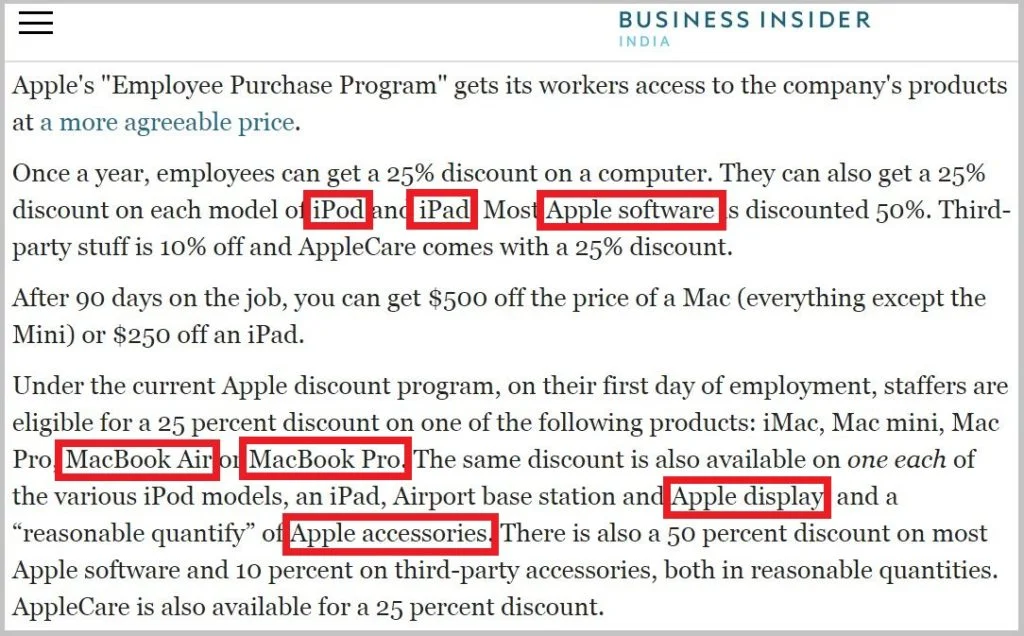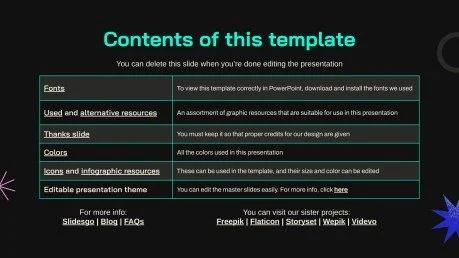In today’s competitive digital marketplace, on-page SEO is the backbone of a successful e-commerce website. Optimizing your product pages, category pages, and site structure can significantly boost your search rankings, drive more organic traffic, and enhance user experience.
Why On-Page SEO Matters for E-Commerce?
Unlike traditional websites, e-commerce stores have hundreds (or even thousands) of pages. Without proper SEO optimization, your products might get buried under competitors. Implementing SEO best practices ensures that search engines properly index your site, making it easier for potential customers to find you.

Essential On-Page SEO Strategies for E-Commerce
1. Optimize Product Pages with Targeted Keywords
Each product page should be optimized with high-intent keywords that match what potential buyers are searching for. Use SEO tools to find long-tail keywords and strategically place them in: ✅ Title tags ✅ Meta descriptions ✅ Headers (H1, H2, H3) ✅ Product descriptions ✅ Alt text for images
Example: Instead of “Wireless Headphones,” use “Best Noise-Canceling Wireless Headphones for Travel.”

2. Craft Unique & Engaging Product Descriptions
Google penalizes duplicate content, so never copy manufacturer descriptions. Write unique, persuasive product descriptions that highlight the benefits and features of each item.
✅ Use storytelling to make the product more appealing. ✅ Incorporate power words like “exclusive,” “premium quality,” or “limited edition.” ✅ Include keywords naturally without stuffing them.
Example: Instead of “Leather Jacket for Men,” use “Upgrade your style with our handcrafted leather jacket, designed for comfort and durability.”
3. Improve Site Structure & Internal Linking
A well-organized site structure enhances user experience and helps search engines understand your content better. Use an intuitive navigation system with clear category hierarchies and internal linking to guide visitors.
✅ Use breadcrumb navigation for better UX and SEO. ✅ Link to related products and category pages. ✅ Ensure each product page links back to the main e-commerce homepage.
4. Optimize URLs for SEO
Avoid long, cluttered URLs. Keep them short, readable, and keyword-rich. ✅ Bad URL: www.example.com/category/product12345?ref=abc ✅ SEO-friendly URL: www.example.com/best-noise-canceling-headphones
5. Leverage User-Generated Content (UGC) & Reviews
Customer reviews and ratings improve credibility and add fresh content to your product pages, which search engines love! ✅ Encourage customers to leave detailed reviews. ✅ Showcase user-generated photos and testimonials. ✅ Enable Q&A sections for customer interaction.

6. Enhance Page Speed & Mobile Optimization
Google prioritizes fast-loading, mobile-friendly websites. If your pages take too long to load, customers will leave, increasing your bounce rate.
✅ Compress product images to reduce load time. ✅ Use a CDN (Content Delivery Network) for faster performance. ✅ Optimize for mobile users since most shoppers browse on smartphones.
7. Implement Schema Markup for Rich Snippets
Structured data (schema markup) helps search engines display rich results, like product ratings, prices, and stock availability. ✅ Add product schema for better visibility in search results. ✅ Implement FAQ schema to answer common customer questions. ✅ Use Google My Business for local SEO benefits.
8. Optimize Meta Descriptions & Title Tags
Each product and category page should have an enticing meta description that includes primary keywords and a compelling call-to-action. ✅ Example Meta Description: “Shop our latest collection of handcrafted leather jackets. Free shipping & easy returns! Limited stock available.”
9. Reduce Bounce Rate with Engaging Content
Keeping visitors on your site longer signals to Google that your content is valuable. Use: ✅ High-quality blog content related to your products. ✅ Video demonstrations to showcase product features. ✅ FAQs and buying guides for added value.
Final Thoughts: Supercharge Your E-Commerce SEO
Improving on-page SEO for your e-commerce website isn’t just about ranking higher—it’s about creating a seamless shopping experience that turns visitors into loyal customers. By following these strategies, you’ll increase your site’s visibility and drive more sales.
Need Professional SEO Help?
At Social Media Max, we specialize in SEO strategies for e-commerce. Let us help you optimize your product pages for higher rankings and more conversions! Contact us today at 0161 399 3517 or email Syed_66@hotmail.com.